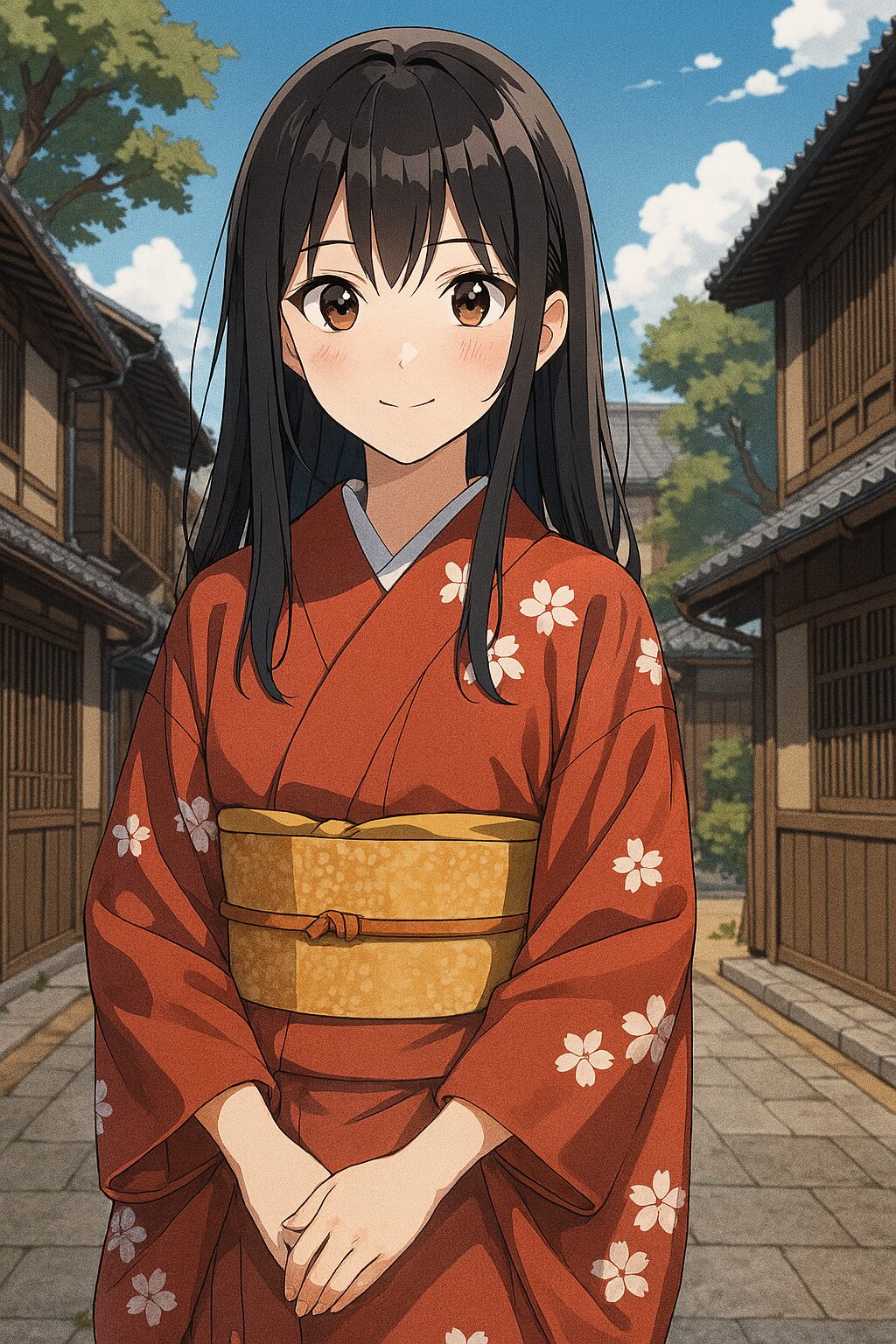What Is Myōji Day (September 19)?
- Uncovering the Hidden History Behind Japanese Surnames
- 📜 The Origin of Myōji Day
- ❗ Common Misconceptions About Japanese Surnames
- 🏯 Multiple Origins of Japanese Surnames
- 🧠 Myōji vs. Myōji: What’s the Difference?
- 🌍 How Japanese Surnames Differ from Western Ones
- 📊 Most Common Japanese Surnames Today
- 🔍 What Surnames Reveal
- 🎌 Reflecting on Myōji Day
- 🔗 Learn More
- 〜日本人の名前に隠された歴史と誤解〜
- 苗字の日の由来
- 多くの日本人が勘違いしていること
- 苗字の由来はひとつじゃない
- 苗字と名字の違い
- 海外の名前文化との違い
- 現代の苗字事情
- 苗字からわかること
- 苗字の日に考えたいこと
- 🔗 外部リンクでさらに学ぶ
- ✨ まとめ
Uncovering the Hidden History Behind Japanese Surnames
Every year on September 19, Japan observes Myōji Day, a cultural anniversary marking the moment in 1870 when the Meiji government officially allowed all citizens to adopt surnames.
But behind this reform lies a deeper story—one that many Japanese people misunderstand. This article explores the origins of Japanese surnames, corrects common misconceptions, and reveals how names reflect Japan’s cultural values. It’s written for international readers curious about Japan’s unique naming traditions.
📜 The Origin of Myōji Day
In the early Meiji era, Japan was undergoing rapid modernization. On September 19, 1870, the government issued the Heimin Myōji Kyoka Rei (Commoner Surname Permission Order), allowing all citizens—not just nobles and samurai—to officially adopt surnames.
Until then, surnames were primarily used by the elite. Commoners either didn’t use them publicly or were thought not to have them at all. But this belief is misleading.
❗ Common Misconceptions About Japanese Surnames
Contrary to popular belief, Japanese commoners were not nameless before 1870. During the Ritsuryō system (7th–8th century), all citizens were considered Ōmitakara—“great treasures” of the emperor—and were granted surnames as a sign of respect and protection.
However, these names were sacred and rarely used in daily life. They appeared in official records but were not spoken aloud or used socially. This practice reinforced the idea that commoners were not slaves of the nobility, but valued members of the imperial realm.
🏯 Multiple Origins of Japanese Surnames
Japanese surnames come from a wide variety of sources, including geography, occupation, nature, and religious beliefs. Here are some examples:
📍 Regional Origins
- Yamada: Rice fields surrounded by mountains
- Kawaguchi: Mouth of a river
- Shōji (東海林): Forest near the eastern sea
🔧 Occupational Origins
- Kaji: Blacksmith
- Daiku: Carpenter
- Ryōshi: Fisherman
🌿 Natural Features
- Mori: Forest
- Ishida: Rocky rice field
- Takahashi: Elevated bridge
⛩️ Religious or Spiritual Origins
- Kamiya: Valley of the gods
- Miyamoto: Near a shrine
🧠 Myōji vs. Myōji: What’s the Difference?
| Term | Meaning |
|---|---|
| 苗字 (Myōji) | “苗” refers to lineage or bloodline, emphasizing family heritage. |
| 名字 (Myōji) | “名” refers to place or territory, emphasizing geographic origin. |
Today, both terms are used interchangeably, but historically they carried subtle differences in meaning.
🌍 How Japanese Surnames Differ from Western Ones
In Western cultures, surnames are part of everyday identity—used in greetings, titles, and legal documents. For example, “Mr. Smith” or “Ms. Johnson.”
In Japan, surnames traditionally represent the household rather than the individual. This reflects Japan’s emphasis on family lineage, community, and social harmony.
📊 Most Common Japanese Surnames Today
Japan has over 300,000 unique surnames. Here are the top five:
| Rank | Surname | Estimated Population |
|---|---|---|
| 1 | Satō | Approx. 1.9 million |
| 2 | Suzuki | Approx. 1.8 million |
| 3 | Takahashi | Approx. 1.4 million |
| 4 | Tanaka | Approx. 1.3 million |
| 5 | Itō | Approx. 1.1 million |
Source: Myoji-Yurai.net
🔍 What Surnames Reveal
- Ancestors’ occupations and social roles
- Geographic roots and local landscapes
- Spiritual beliefs and cultural practices
- Family history and generational continuity
Learning about your surname is a way to reconnect with your heritage and understand your place in history.
🎌 Reflecting on Myōji Day
- Research the origin of your surname
- Talk to family members about ancestral stories
- Explore local history and place names
- Appreciate the cultural depth behind your name
Myōji Day is more than a date—it’s an invitation to rediscover your personal and cultural identity.
🔗 Learn More
- Myoji-Yurai.net (Surname Origin Database)
- What’s Today’s Special Day? Blog Series
- Japan Anniversary Association
This article is part of a cultural storytelling project aimed at sharing Japan’s traditions with the world. We hope it inspires you to explore the meaning behind your own name.
© 2025 Japanese Culture Blog
苗字の日(9月19日)とは?
〜日本人の名前に隠された歴史と誤解〜
毎年9月19日は「苗字の日」。この記念日は、1870年(明治3年)に明治政府がすべての国民に苗字を名乗ることを許可したことに由来しています。
しかし、この「苗字解禁」の背景には、現代の日本人が見落としがちな深い歴史と文化的誤解が潜んでいます。
苗字の日の由来
明治時代の初期、日本は近代国家への大改革を進めていました。その一環として、1870年9月19日、太政官布告により「平民苗字許可令」が発布され、すべての国民が苗字を名乗ることが許されました。
それまで苗字を持っていたのは、主に武士や貴族などの特権階級。一般庶民は苗字を持っていない、あるいは持っていても使えないと思われていました。
多くの日本人が勘違いしていること
実は、律令体制が敷かれた奈良時代から、日本の民はすでに苗字を「与えられて」いました。天皇が民を「大御宝(おおみたから)」として大切に扱う思想のもと、すべての民に苗字が授けられていたのです。
ただし、それは表立って使うものではなく、神聖なものとして戸籍や役所での記録に限られていました。庶民は貴族の奴隷ではなく、天皇の大切な民として扱われていたという事実は、もっと広く知られるべきでしょう。
苗字の由来はひとつじゃない
日本の苗字には、地域性・職業・自然・信仰など、暮らしのあらゆる側面に根ざした多様な由来があります。
地域に由来する苗字
- 山田:山に囲まれた田んぼのある地域
- 川口:川の入り口に住んでいた人々
- 東海林(しょうじ):東の海に面した林の近く
職業に由来する苗字
- 鍛冶:鉄を打つ職人
- 大工:建築に携わる職人
- 漁師:魚を獲る人々
自然や地形に由来する苗字
- 森:森の近くに住んでいた
- 石田:石の多い田んぼ
- 高橋:高い場所に架かる橋
信仰や神社に由来する苗字
- 神谷:神の宿る谷
- 宮本:神社の近くに住む者
苗字と名字の違い
| 表記 | 意味・背景 |
|---|---|
| 苗字 | 「苗」は血筋や家系を意味し、家系の継承を重視した表現 |
| 名字 | 「名」は土地や地名を意味し、居住地や領地に由来する表現 |
海外の名前文化との違い
海外では姓(ファミリーネーム)は個人のアイデンティティの一部として日常的に使われます。例えば英語圏では「Mr. Smith」「Ms. Johnson」のように、姓が敬称とセットで使われるのが一般的です。
一方、日本では苗字は「家」を表すものであり、個人よりも家系や集団を重視する文化が根底にあります。
現代の苗字事情
現在、日本には約30万種類以上の苗字が存在すると言われています。以下はその中でも多い苗字トップ5です。
| 順位 | 苗字 | 推定人数 |
|---|---|---|
| 1位 | 佐藤 | 約1,900,000人 |
| 2位 | 鈴木 | 約1,800,000人 |
| 3位 | 高橋 | 約1,400,000人 |
| 4位 | 田中 | 約1,300,000人 |
| 5位 | 伊藤 | 約1,100,000人 |
参考:名字由来net
苗字からわかること
- 先祖の職業や社会的役割
- 住んでいた地域や地形
- 信仰や文化的背景
- 家系の継承と歴史
苗字を知ることは、自分自身のルーツを知ることでもあります。
苗字の日に考えたいこと
- 自分の苗字の由来を調べてみる
- 家族や祖先の話を聞いてみる
- 地域の歴史や地名に興味を持つ
- 名前に込められた「物語」を感じる
🔗 外部リンクでさらに学ぶ
✨ まとめ
苗字は、過去と現在をつなぐ「文化の架け橋」です。その由来を知ることで、日本人の価値観や歴史観、そして天皇と民の関係性まで見えてきます。
「苗字の日」に、自分の名前の意味をもう一度見つめ直してみませんか?それは、あなた自身の物語を再発見する旅の始まりかもしれません。
この記事は、日本文化を世界に伝えることを目的とした読み物です。海外の読者にも、日本の名前文化の奥深さが伝わることを願っています。
© 2025 Japanese Culture Blog



コメント